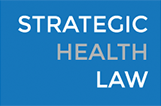Life Sciences Industry Challenges Drug Price Negotiation Program

By Katarina Weessies
The Inflation Reduction Act’s (IRA) novel and controversial drug pricing negotiation program is being challenged in at least seven lawsuits, including some from manufacturers of drugs selected to undergo the negotiation process. The challenged program requires manufacturers to negotiate prices with the government for select drugs covered by Medicare Parts B and D. Among other things, challengers argue that the program violates the First and Fifth Amendments.
The Drug Price Negotiation Program
The challenged portion of the IRA requires the US Department of Health and Human Services (HHS) to negotiate prices with drug companies for a small number of brand-name drugs covered under Medicare Part D (starting in 2026) and Part B (starting in 2028). Under the new drug price negotiation program, the number of drugs subject to price negotiation will be 10 Part D drugs in 2026, another 15 Part D drugs in 2027, another 15 Part D and Part B drugs for 2028, and another 20 Part D and Part B drugs from 2029 on. HHS selects the drugs from among the 50 drugs with the highest total Medicare Part D spending and the 50 drugs with the highest total Medicare Part B spending. The number of drugs with negotiated prices available will accumulate over time. The first set of drugs selected for the process have already been announced, and the affected manufacturers have until early October to sign agreements to participate in the process and submit data to CMS for determination of a maximum fair price.
Certain drugs are exempted from negotiation, with the exemptions focused on “small biotech drugs,” recently approved drugs, and drugs with orphan designations. For example, the IRA exempts drugs that are less than 9 years (for small-molecule drugs) or 13 years (for biological products) from their FDA-approval or licensure date from the negotiation program. Drugs with a generic or biosimilar available are also exempt, being outside the scope of the program.
Manufacturers that do not comply with the negotiation process will be subject to an excise tax that begins at 65% of a product’s sales in the U.S. and increases by 10% every quarter to a maximum of 95%. Manufacturers will have the option to withdraw all of their drugs from coverage under Medicare and Medicaid as an alternative to the excise tax. Manufacturers that refuse to offer the negotiated price once the process has concluded will pay a civil monetary penalty equal to 10 times the difference between the price charged and the maximum fair price.
Legal Challenges to the Program
The lawsuits challenging the drug price negotiation program do so on Constitutional grounds. While arguments vary, most claim that the negotiation program violates the First and Fifth Amendments. Merck filed the first lawsuit, followed by the U.S. Chamber of Commerce, Bristol Myers Squibb, the National Infusion Center Association, Janssen Pharmaceuticals, Boehringer Ingelheim, and AstraZeneca. Merck, in an argument representative of those made by multiple other claimants, asserts that the negotiations and resultant discounts will result in a government “taking” in violation of the Fifth Amendment. “By design, the IRA does not provide just compensation, because it requires HHS to seize minimum discounts from market benchmark prices and grants the agency vast discretion to provide even less remuneration,” the Merck lawsuit says.
Merck, in another argument typical of the various lawsuits, contends that the program violates the manufacturer’s First Amendment right because the program would force Merck to say it “agreed” to negotiating a price for drugs mandated by the government and that the new price is “fair” independent of whether the company believes that to be the case. The Chamber of Commerce lawsuit, which makes similar First and Fifth Amendment claims, also argues that the penalties levied against non-compliant drug manufacturers violate the Eighth Amendment. HHS Secretary Xavier Becerra said that HHS plans to “vigorously defend” the drug negotiation provisions. On Friday, September 15, a federal judge in the Southern District of Ohio heard oral arguments on the U.S. Chamber of Commerce’s request for a preliminary injunction by October 1, which could block the negotiation process before it begins.




